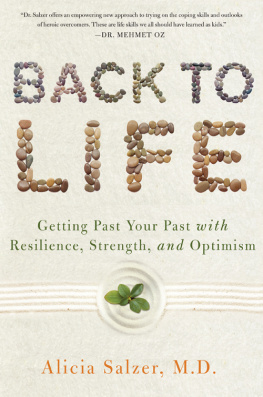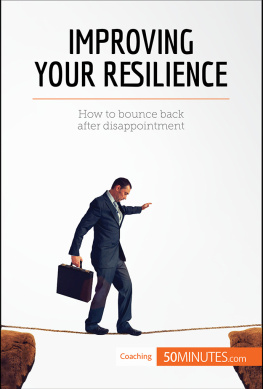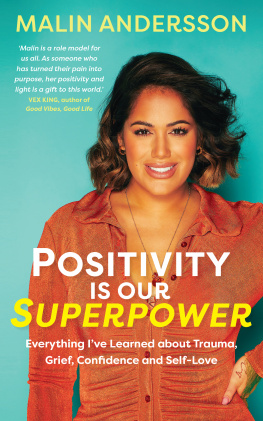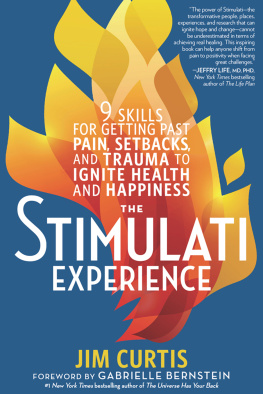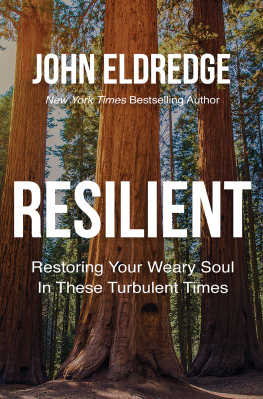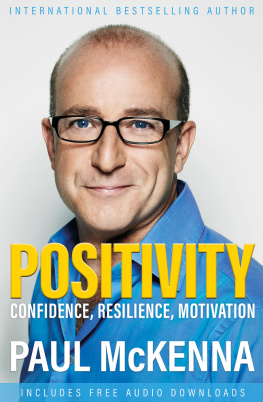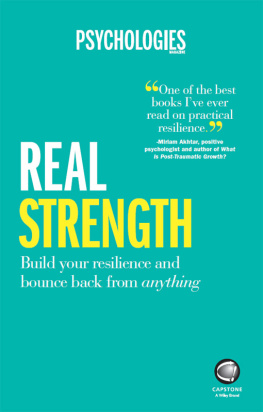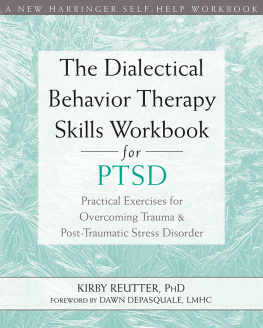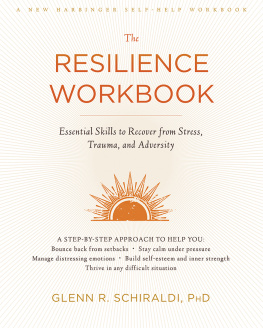Back To Life
Getting Past Your Past with Resilience, Strength, and Optimism
Alicia Salzer, M.D.

Dedication
For Piper, my starfish
And for Leslie, who keeps a roof over our heads and the ground beneath our feet
Epigraph
In a world blinded by the pursuit of pleasure, I am here to say that people are in pain. In a world rushing to get ahead, I am here to say that people are being left behind. In a world obsessed with the value of the market, I am here to speak for the value of life... and I am alive. This will be no quiet fight, for I am the voice of audacity in the face of apathy. I am the spirit of bravery in a world of caution. I am a commitment to action in the face of neutrality. I am alive.
Dan Pallotta, activist/survivor
Contents
A s children we seethe world with a sense of wonder. We imagine that we are princesses orsuperheroes, and we inhabit those roles with conviction. As adolescents we fallwildly and romantically in love. We plan our lives and plot our dreams, and webask in the assurance that we will become who we are meant to be. What happenedto that passion and vibrancy? Well, life happeneddisappointments, setbacks,tragedies. We dont often stop to consider these collective losses and whatcauses them, but accumulate too many of them and life starts to feel dull andhard.
Most of us have had experiences in our past that wefeel have changed us forever and changed us for the worse. Many of us look inthe mirror and see a person who has become bitter and angry or fearful anduncertain. We have trouble getting past our pasts. We continue to feelthin-skinned, damaged, powerless, ashamed. Life certainly takes its toll.
Yet in our midst are people who do overcome lifestragedies and challenges and do so with apparent grace. We read theirbiographies. We go to hear them speak. We watch them on TV and we ask ourselves: How did they do it?
How does a person live through a life-alteringchallenge yet emerge still self-possessed, still hopeful, still empowered? Howdid they retainor regaina sense of safety and trust?
For us, the people on those TV shows are a realmystery. We scan their faces and stories for clues, longing to know what theyhave that we dont have and whether its possible to get there from here. Whatgave them the courage to move forward? How did they lay the anger to rest? Howdid they find purpose from something so senseless? What did they think and do intheir darkest hour to get them back to the positive place they seem to be innow? How did they overcome?
Unfortunately, the how doesnt make for goodtelevision, so we tend to see the wretched before and the glorious afterpunctuated by an epiphany that miraculously turned their life around. This makesit seem like some kind of healing magic appeared in their lives and helped themget past their past.
In fact, they are working hard to earn the easewith which they seem to move through life. They are practicing the art ofsurvivorship. They know what and who makes them feel good, safe, and vibrantlyalive and they pursue those things and people with discipline and vigor. Theyknow how to soothe themselves, how to reassure themselves, how to restore theirown sense of self, their faith, and their ability to cope. When we look at thesepeople, these resilient overcomers, we tend to notice their impressive actions. But what I find most significant andcompelling is the way these survivors take charge of the thoughts that they allow to inhabit their minds, the emotions that they cultivate in their hearts.

Resilient survivorshave a special way of thinkingabout what they have been through that enablesthem to thrive.

And everything they know, you can learn. In thecourse of my work, I have met a lot of heroes, some famous, most not, who havetaken the challenges of being human and woven from them a life in the aftermaththat is a magnificent tribute to the resilience of the human spirit. I am alwayslookingjust as you arefor the how. And I have found some concrete answersthat really help.
As a psychiatrist I have focused on trauma for thepast ten years. At times I have found myself in the trenches with my patients inthe immediate aftermath of major psychological trauma. I have worked as anattending psychiatrist in the psychiatric emergency room of a New York Cityhospital where people turn when their life is at its very worst. I have workedwith disabled New York City mass transit workers who sustained psychologicaltrauma on the job. After my hometown was attacked on September 11, I worked withan organization called Disaster Psychiatry Outreach and treated hundreds of NewYorkers. At first I volunteered at Ground Zero, talking with firefighters andparamedics, ironworkers and neighbors, all of whom had found themselvesunexpectedly in a war zone. Later I volunteered at the heartbreaking familyassistance center that was set up to help the families of those missing,injured, or killed.
While it is valuable to help support and advisepeople in the midst of their crisis, it is in the months and years afterwardthat real progress is made, as they struggle to get back to a life that apsychological trauma derailed. It is in the long term that certain individualsemerge who seem blessed with an ability to move forward with grace. For threeyears after 9/11, I worked at the Mount Sinai World Trade Center Clinic, whichprovided free treatment for Ground Zero rescue workers and volunteers. I alsoworked, for five years, as the trauma expert and aftercare director for The Montel Williams Show, where I had the opportunityto meet and to help hundreds of remarkable survivors. In my years as a traumapsychiatrist, I have had the opportunity to see people at their very worst andtheir very best. What moves me most is when a person finds a way to besimultaneously both. But make no mistake, the people we call heroes face doubts,just like the rest of us; they have lost hope, and floundered, and fallen ontheir faces, too. But they have specific skills and strategies that theyimplement in moments of doubt and crisis and they utilize these skills in a waythat is part life raft and part religion.
A rare few heroic overcomers seem to have been bornwith an intuitive sense of how to surmount lifes psychological traumas; maybethey were taught some of these skills in childhood. But most of them made anactive decision that enough was enough. At which point they took control overthe thoughts they allowed to inhabit their heads. Its an impressive disciplinethat they have cultivated, but there is no bar to admission. Everyone can learnthe habits they practice and the outlooks they take. Everyone can try on theskills that these resilient survivors use in the face of lifes inevitablechallenges. And everyone can use them to feel better.
I use the word trauma a lot in this book. As in lifes traumascame along and robbed you of your sense of hope. For many the word may soundalarming.
What exactly qualifies as a psychologicaltrauma?

For the purposes ofthis book, a trauma is any event or situation that fundamentally shakes our understandingof the world and of our place in it.

Certainly this includes all the horrors that onetypically thinks of when the word trauma is used. But in my opinion it alsoincludes a host of other experiences that leave us reeling because the rulesof life seem to have suddenly changed. In this view, a trauma might be a healthissue, a betrayal, the loss of an apartment or job. When a life event robs youof your sense of well-being and self-esteem and leaves you feeling unsafe or outof controlthats a trauma, too.
Next page
